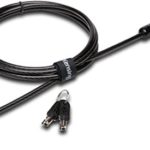The phrase “buyer beware” is a warning and a wise reminder in many situations, but when it comes to buying a laptop, don’t let the old adage scare you off from getting the best device for your needs. With laptop shopping, there are certain features that every consumer should be aware of before making any purchases. In order to get the most bang for your buck, or in this case an understanding of what you’re going to get for your dollar, here are some factors that you should take into consideration before making any purchases.

Table of Contents
Size & Form Factor
A laptop’s size and form factor will depend on your needs. If you intend to carry your laptop everywhere you go, then a smaller device should be considered. However, if you’re going to leave it stationary at home or in the office most of the time, a bigger screen might be more beneficial since it will provide a larger viewing area for games, movies, and work-related applications.
Another thing to consider is how big of a laptop bag you have. Most laptops have 14-inch screens these days so they can fit into nearly any carrying case with ease. For comparison, an old netbook would get lost inside even the largest laptop bag.
A hybrid tablet is in demand these days. They can work as a tablet and a laptop with attachable keyboards. There are various options when it comes to hybrids but they usually lack the processing power and less than stellar battery life.
RAM
More RAM is always better than less RAM when it comes to computers because every program and every website you open will need memory in order to run properly.
Most low-end laptops still come with 2GB of RAM while some high-end desktop replacements have upwards of 16GB.
For the most part, 4GB is more than enough for casual surfing and day-to-day computer usage but on intensive tasks like playing games or video editing, 8GB is ideal for keeping things running smoothly.
Screen Quality
When it comes to laptop screens, there are two options: backlit LED displays and LCDs (liquid crystal displays). Both of these technologies come with their own sets of benefits and drawbacks so choosing one over the other is ultimately a personal preference.
Many new laptops also come with IPS panels which provide better viewing angles and color reproduction.
Battery Life
Laptop batteries cannot be easily replaced like a traditional desktop computer and because of that, it is important to find out how long your laptop battery will last before you make any purchases.
Aside from the standard notebook batteries, many laptops now come with either extended or removable batteries so always check which you have before buying a replacement.
Also, note that having an extended battery will add more weight to the device as well as decrease its overall portability.
Battery life can vary even within the same manufacturer as some laptops might have better power management than others so consider how much mobility you need before making this particular purchase decision.
CPU & GPU
The CPU (central processing unit) is the “brain” of any computer while the GPU (graphics processing unit) handles all of the graphics tasks so it’s important to have both integrated into one device.
It might seem counterintuitive but having two separate processors for this kind of application will actually decrease battery life and overall performance/responsiveness.
The vast majority of current-generation laptops come with decent hardware that can handle most modern applications but if you plan on playing graphically intensive games or doing other resource-intensive work, then you might want to invest in a desktop replacement laptop instead.
Price
Laptops are affordable these days and for the most part, they all have similar hardware specs. Having said that, there are some laptops available with unique form factors or more powerful components which might make them worth an extra investment.
However, it is important to keep in mind that spending more money on a laptop doesn’t necessarily mean you will get a better device. Some of the most expensive laptops come with inferior hardware components and there are also budget laptops that outperform their expensive counterparts.
Storage
As with any electronic device, there are many different storage options to choose from when buying a laptop. Most entry-level models come with standard hard drives which offer more than enough space for most users at a low price.
However, if you’re looking to save some money and don’t mind buying your own external hard drive then consider investing in an SSD (solid-state drive). Although pricier than traditional HDDs, SSDs help laptops boot up and launch applications much faster since they don’t have any moving parts.
Also, while not as common yet, new hybrid 2-in-1 laptops come with both standard storage and integrated flash memory so you can use it as a tablet when on the go and like a laptop when at home or work.
USB 3.0 Ports
With many different types of devices connecting to PCs nowadays such as smartphones, tablets, and even extra monitors/screens, having a laptop with several USB ports comes in very handy.
The difference between USB 3.0 and 2.0 is the transfer speed so it’s best to invest in a device that supports the latest standard available on most new hardware.
Also, consider buying a laptop that has at least one USB-C port for transferring data or connecting peripherals in order to futureproof your purchase decision as much as possible.
Keyboard Quality

Aside from touchscreens, laptops usually come with either low-quality keyboards or none at all which isn’t ideal if you plan on using them for typing often (especially when away from home).
Most premium ultrabooks will have decent built-in keyboards but again it ultimately comes down to personal preference when buying this sort of device.
Biometric Security
As laptops are becoming more common in homes, schools, and businesses, it is important to consider which security options are available on your device of choice.
With the fingerprint sensor being the most popular biometric authentication method for laptops these days, it’s best to look for a model that comes with this feature enabled before making any purchase decisions.
The other two types of biometric scanners use either iris or facial recognition so keep an eye out for laptop models that support one or both of these technologies if you find them convenient.
Build Quality
Well-built devices can last years longer than their cheaper counterparts so always double-check how much money you’ll need to put aside for proper care/maintenance when buying a laptop.
While costlier devices come with sturdier parts and higher quality components, you can often see a poorly made laptop from a mile away so keep an eye out for those as well.
Conclusion
In order to get the most bang for your buck, it’s important to consider all of these factors when buying a laptop. The more you know about what you’re getting into, the easier it will be to make an informed decision and end up with a product that’ll perform well in different scenarios without giving you any unpleasant surprises down the line.





